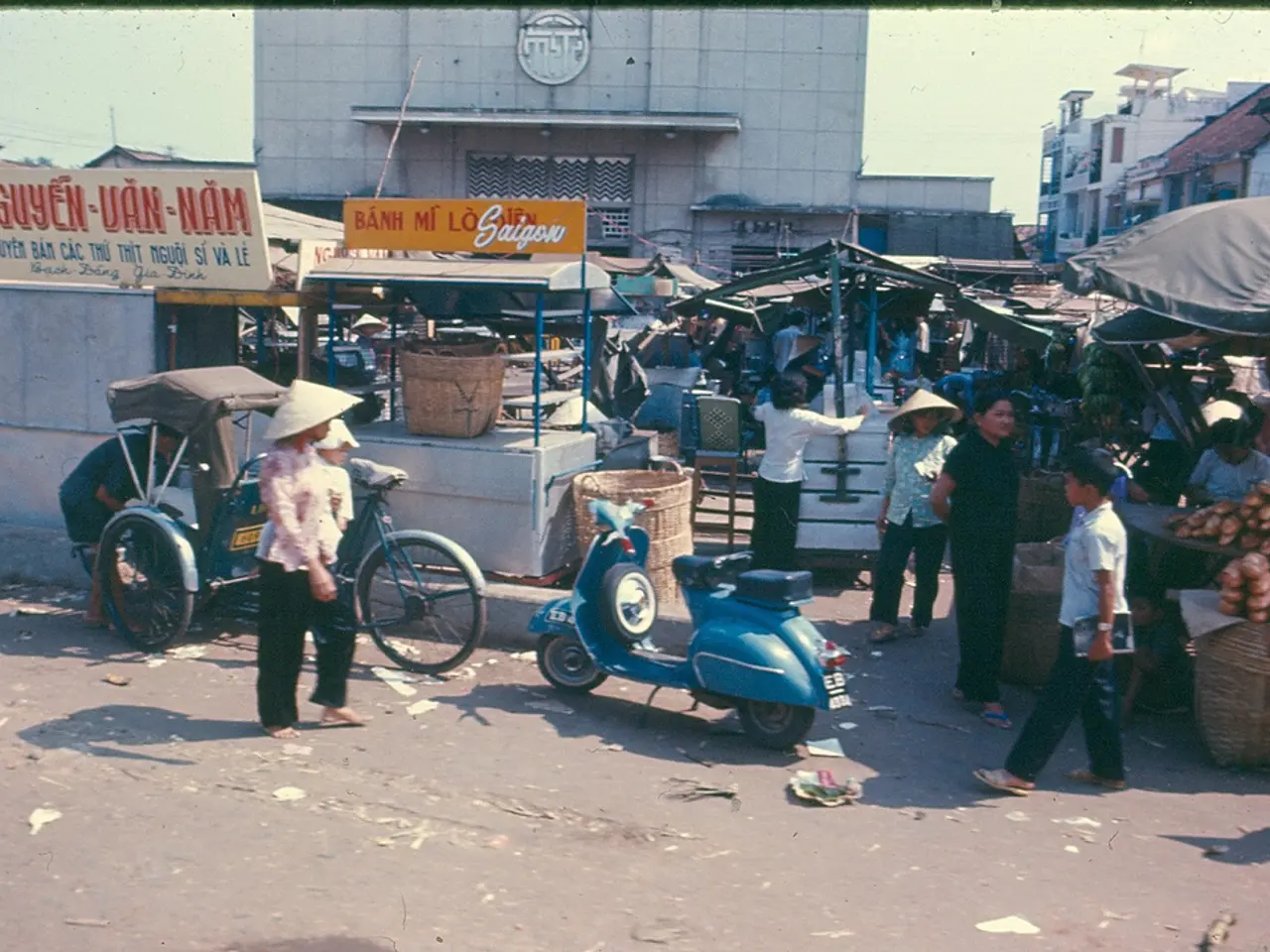Modi Praises Swachh Bharat Mission, Declaring it a Symbol of National Determination on 124th Mann Ki Baat Broadcast
The Swachh Bharat Mission (SBM), a decade-old initiative launched by Prime Minister Narendra Modi, continues to make significant strides in promoting sustainable urban cleanliness and waste management across India.
The mission's success is evident in cities like Indore, Surat, and Navi Mumbai, which have consistently topped the Swachh Survekshan rankings, making them national benchmarks for sanitation and urban cleanliness. Indore, in particular, has been declared India's cleanest city for the eighth consecutive year, thanks to robust door-to-door waste collection, segregation at source, and scientific waste processing systems.
The Swachh Bharat Mission is not just limited to major metros. Cities like Ahmedabad, Bhopal, and Lucknow have also embraced circular economy principles, transitioning towards sustainable urban governance and solid/liquid waste management. In smaller towns, 34 cities were recognized as Promising Clean Cities, indicating widespread regional improvements in cleanliness and waste management.
The expansion and strengthening of the mission are reflected in the Swachh Survekshan, which started with 73 cities and has now grown to evaluate 4,589 Urban Local Bodies in the 2024–25 cycle. SBM-Urban 2.0 focuses on creating garbage-free cities through faecal sludge and plastic waste management, greywater treatment, and capacity building to sustain urban sanitation gains.
A key sustainable strategy launched by the mission is the Swachh City Partnership Initiative, where 78 top-performing cities mentor one underperforming city each to share knowledge and improve sanitation collectively. This peer-learning model emphasizes inclusivity and collective progress, ensuring regional transformations across various States and Union Territories.
The mission's success is also attributed to the implicit empowerment of women in sanitation roles. While specific details on women-led projects may not be readily available, the mission's large-scale engagement often includes empowering women as key stakeholders, such as Safai Mitras (sanitation workers) and community leaders, in sanitation awareness, monitoring, and waste management. For example, the Safai Mitra Surakshit Shehar awards have been given recognizing the safety and dignity of sanitation workers, many of whom are women, fostering a gender-inclusive sanitation workforce.
The Lucknow Gomti River team's efforts to clean the river every Sunday for ten years have been commended by the prime minister. Similarly, the 200-member women-led Sakaratmak Soch team in Bhopal has changed attitudes and raised the city's Swachh Survey ranking by cleaning 17 parks and distributing cloth bags.
The Swachh Bharat Mission has grown into a powerful public movement, motivated by residents who see cleanliness as a shared responsibility. Cities like Karad, Vijayawada, and Ahmedabad are leading by example in water management and riverfront cleanups, while Mangaluru boasts tech-driven organic waste solutions. The "Green Roing Initiative" revolutionized garbage management in Roing, Arunachal Pradesh, even repurposing waste materials to create a park.
Prime Minister Modi has emphasized that maintaining cleanliness requires ongoing dedication, not just a one-time effort. He reminds us that the country will remain clean only if we give it priority every day, every moment of the year. The Swachh Bharat Mission brings India together in the fight for a better, cleaner future, empowering women and fostering public involvement along the way.
- The Swachh Bharat Mission (SBM) promotes reporting on sustainable urban cleanliness and waste management at various events to share success stories and practices with other cities.
- Cities are encouraged to offer courses on ESG principles and green environmental science to promote sustainability and health-and-wellness, with a focus on women's health and lifestyle, home-and-garden, and sustainable living.
- The SBM recognizes the importance of a clean and green environment not just for city development but also for overall environmental sustainability and the health of its residents.
- As part of the SBM's expansion, it seeks to improve waste management infrastructure in terms of faecal sludge, plastic waste, and greywater treatment, focusing on home composting and bio-degradable products.
- SBM evaluates the performance of urban local bodies, such as cities and towns, in promoting events like green marathons and runs, cleanliness drives, and home gardening workshops to encourage sustainable living.
- In a nod to sustainable living, the SBM awards cities and individuals for their contributions towards green and clean initiatives, such as using reusable bags, co-composting, and water conservation.
- The Swachh Bharat Mission website maintains a section for public reporting on various sustainability aspects, including energy consumption, waste management, and water usage, to promote transparency and accountability.




